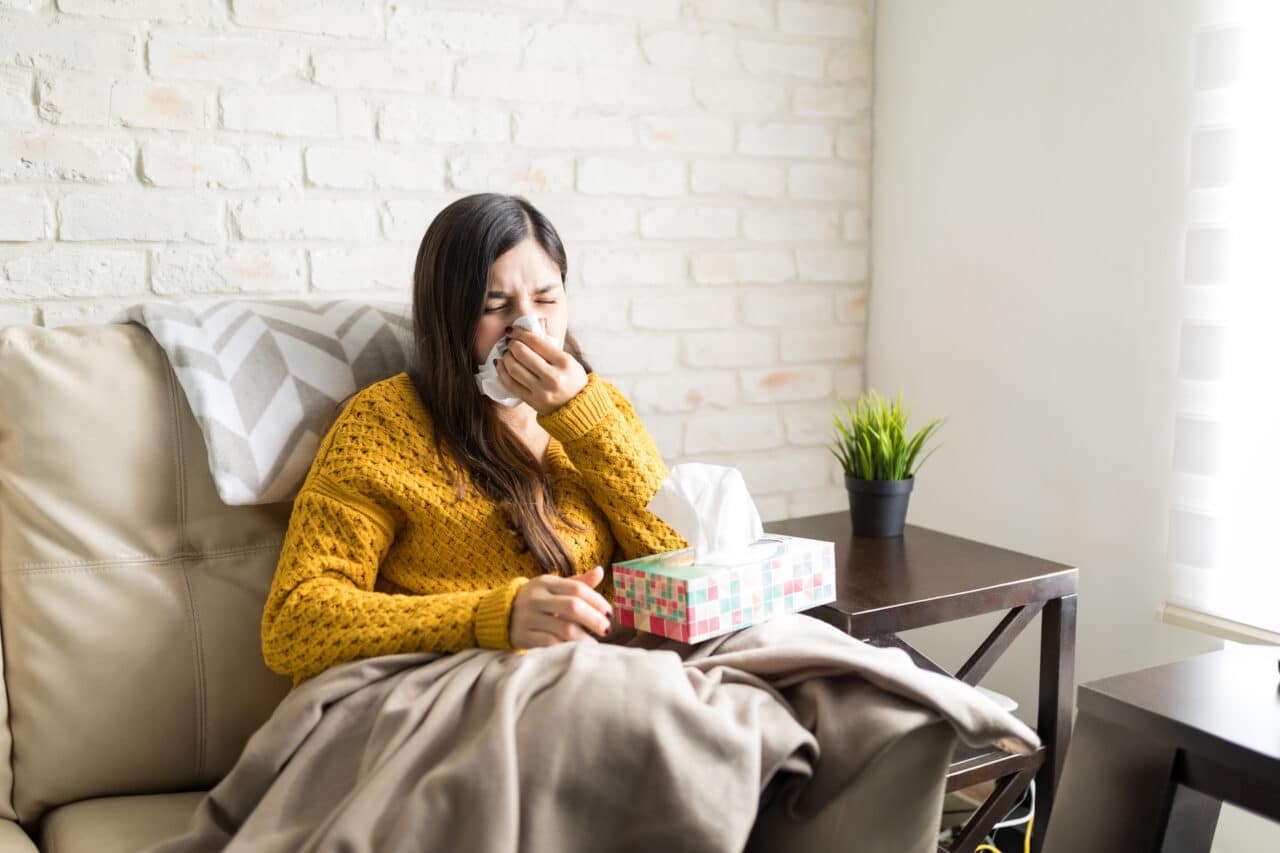
Does cold winter weather have you hunkering down at home in hibernation mode? If so, you’re probably tempted to turn the thermostat way up, which can hurt more than just your finances (hello, huge heating bill)—it can also harm your health.
How Dry Heat Contributes to Allergy and Sinus Issues
Cranking up the heat can cause the air in your home to dry out, and too much dry air can lead to dry sinuses. When your sinuses are dry, bacteria and other allergens can more easily enter your sinuses, leading to allergy and sinus issues.
Easy Ways to Keep Dry Air to a Minimum
Making a few simple adjustments to your living space will help ensure your sinuses stay moist without sacrificing your comfort level:
- Drink more water—experts recommend six to eight glasses daily to ensure you’re well hydrated, so feel free to make H2O your drink of choice.
- Use a humidifier—today’s humidifiers don’t just add moisture to the air in your home, helping prevent dryness. They also contain technology that will adjust the amount of mist they emit based on the humidity level you select. Generally, you want the humidity level in your home to be between 30% and 60%.
- Turn the heat down a smidge—prevent dry air by setting your thermostat a few degrees lower than usual if you can tolerate it. Feeling chilly? Throw on a thick sweater or cuddle up under a cozy blanket to help you stay warm.
Are you struggling more than usual with allergy and sinus issues this winter? Don’t put up with uncomfortable symptoms—talk to our experts, today.
“I came to be under Dr. Donovan's care during a medical emergency at the hospital. The care I received that day and in every interaction after, at Willamette ENT has been prompt, professional and very thorough. I feel very well cared for.”